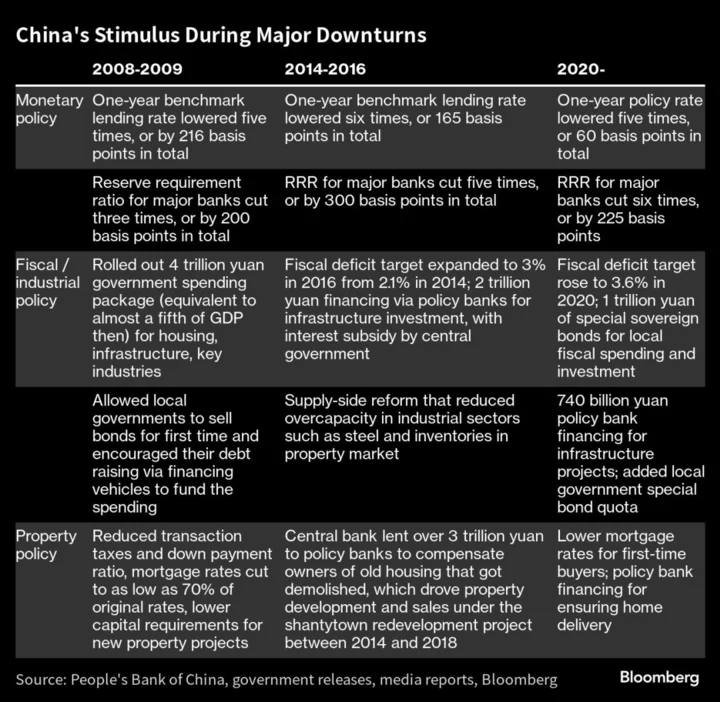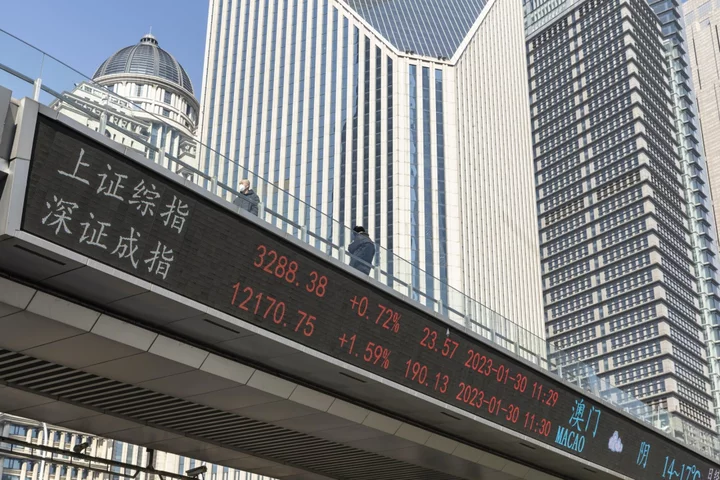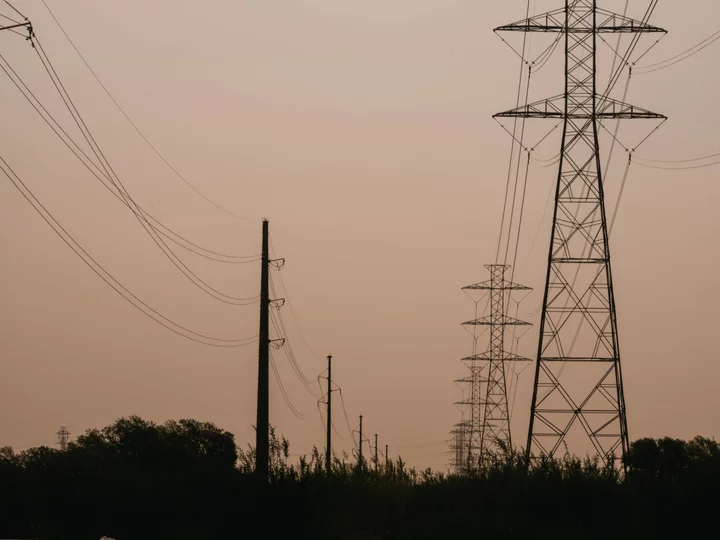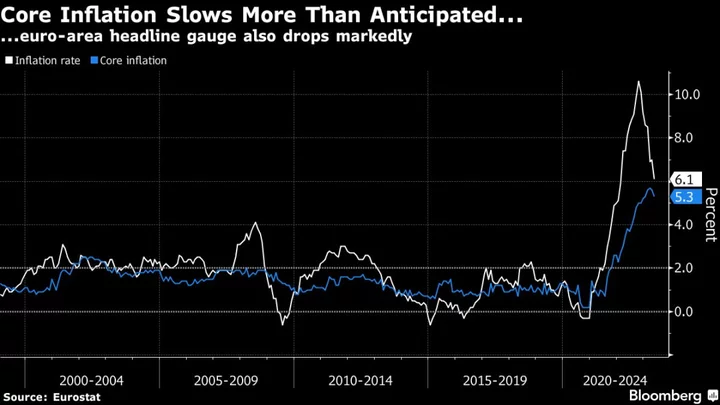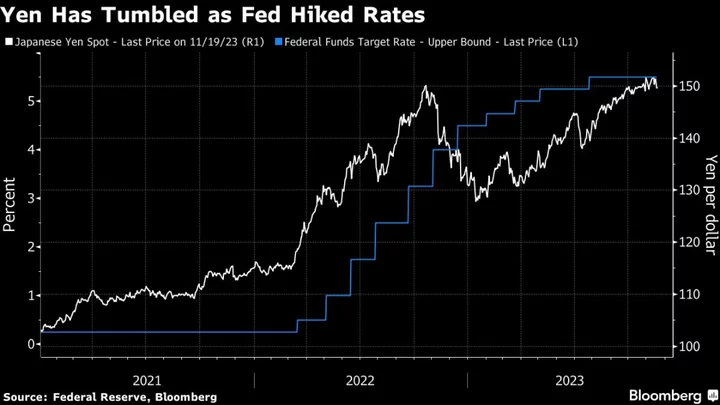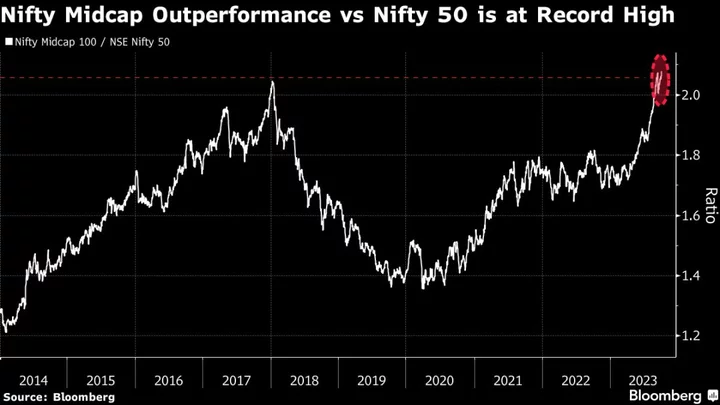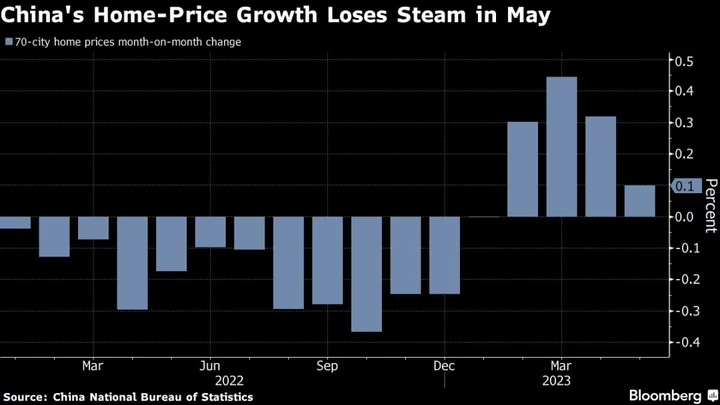Chinese authorities are facing pressure to back up their reassuring rhetoric on the economy with more substantive action.
Shares in China are headed for their third straight week of losses, the yuan is trading near an eight-month low and angst in the nation’s credit market is growing. While Premier Li Qiang pledged on Thursday to “spare no time” in implementing targeted stimulus, he offered none of the specifics that investors have been clamoring for.
During a meeting with economists, Li said the government will introduce a package of “targeted, comprehensive and well-coordinated” measures to stabilize growth and employment and prevent risks “in a timely manner.” A readout of the event was published by the official Xinhua News Agency.
Li also said the country was “at a critical period of economic recovery and industrial upgrading.” Those remarks suggested authorities are keen to stay the course charted at an economic meeting among top leaders in April, said Bruce Pang, chief economist at Jones Lang Lasalle Inc.
“Policies are still being formed, but there’s unlikely to be any big stimulus,” Pang said, adding that the government needs to strike a balance between stabilizing growth in the short term and avoiding incurring any long-term structural risks.
Stocks in China and Hong Kong fell Friday amid broad weakness in Asia. A gauge of Chinese shares listed in the financial hub lost as much as 0.7% in early trading, while the onshore CSI 300 Index is down about 0.4%. The offshore yuan rose modestly by 0.1% at 7.2481 per dollar, set for the first weekly gains in three.
Li also signaled that authorities are committed to addressing the pain felt by private and foreign firms, which have seen their profits plunge and market access narrow in recent years amid regulatory crackdowns and rising US-China tensions. A “regular communication mechanism” will be created with the sector, he said, without providing more specifics.
Expectations the government will announce economic support have been building in recent weeks as the recovery loses steam. The property market is weak, youth employment is at record highs and household and business confidence remains sluggish.
The central bank cut policy interest rates last month for the first time in nearly a year, signaling looser monetary policy. But that policy loan rate was trimmed by only 10 basis points, and additional measures have been marginal, such as moves to extend tax incentives for people to buy electric cars. Economists have been warning that any stimulus measures will likely be limited in scope.
Investor pessimism, meanwhile, has grown after a private survey signaled weakening momentum in service-sector growth, and as geopolitical tensions increased after China announced export controls on key metals.
The Communist Party’s all-powerful Politburo will have a chance to discuss stimulus later this month when it is expected to gather for a key economic meeting. The authority’s July meeting is typically when it charts economic policy for the rest of the year.
--With assistance from Zhu Lin, Ishika Mookerjee and Wenjin Lv.

